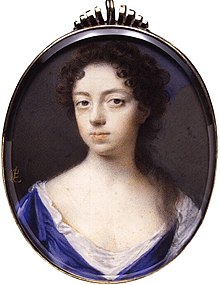Well, they were older than me, anyway, and who wanted to join in with the old folk?
It sometimes made thinking rather difficult.
If only I'd known, feminism had been going for a long time before Betty Friedan. I mean, Mary Wolstonecraft? A comparative late-comer.
Apart from the long tradition of don't-mess-with-me political figures, from Boudicca to Matilda to Elizabeth the First, there was the excellent Anne Finch.
Who?

Well, as it happened she became (unexpectedly) Lady Winchilsea, but her life was dominated by the fact that her husband Heneage Finch was a supporter of the British king James II, and the king's exile tainted the Finches by association. Anne also suffered greatly from depression.
So to what did Anne turn to help her through difficult times? Well, she wrote some excellent poetry.
This is from her 1713 poem The Introduction.
They tell us we mistake our sex and way;
Good breeding, fashion, dancing, dressing, play,
Are the accomplishments we should desire;
To write, or read, or think, or to enquire
Would cloud our beauty and exhaust our time,
And interrupt the conquests of our prime;
While the dull manage of a servile house
Is held by some our utmost art and use.
So there you are. She may have been depressed and have backed the wrong monarch, but she still sang true, didn't she?
Word To Use Today: finch. The Old English form of this word was finc, and it can be traced all the way back to the Greek spingos. The rather sumptuous adjective from finch is fringilline.
She is the author of one of the best bits of poetry ever which I can't remember. Will search and add another comment!
ReplyDeleteAdele has emailed me because for some reason her second comment to this post keeps being rejected. It's from The Spleen:
Delete'My hand delights to trace unusual things,
And deviates from the known and common way;
Nor will in fading silks compose
Faintly th’ inimitable rose'
Thanks so much, Adele - I've been aware of that last line for ages, but until now never knew from whence it came. It's terrific.